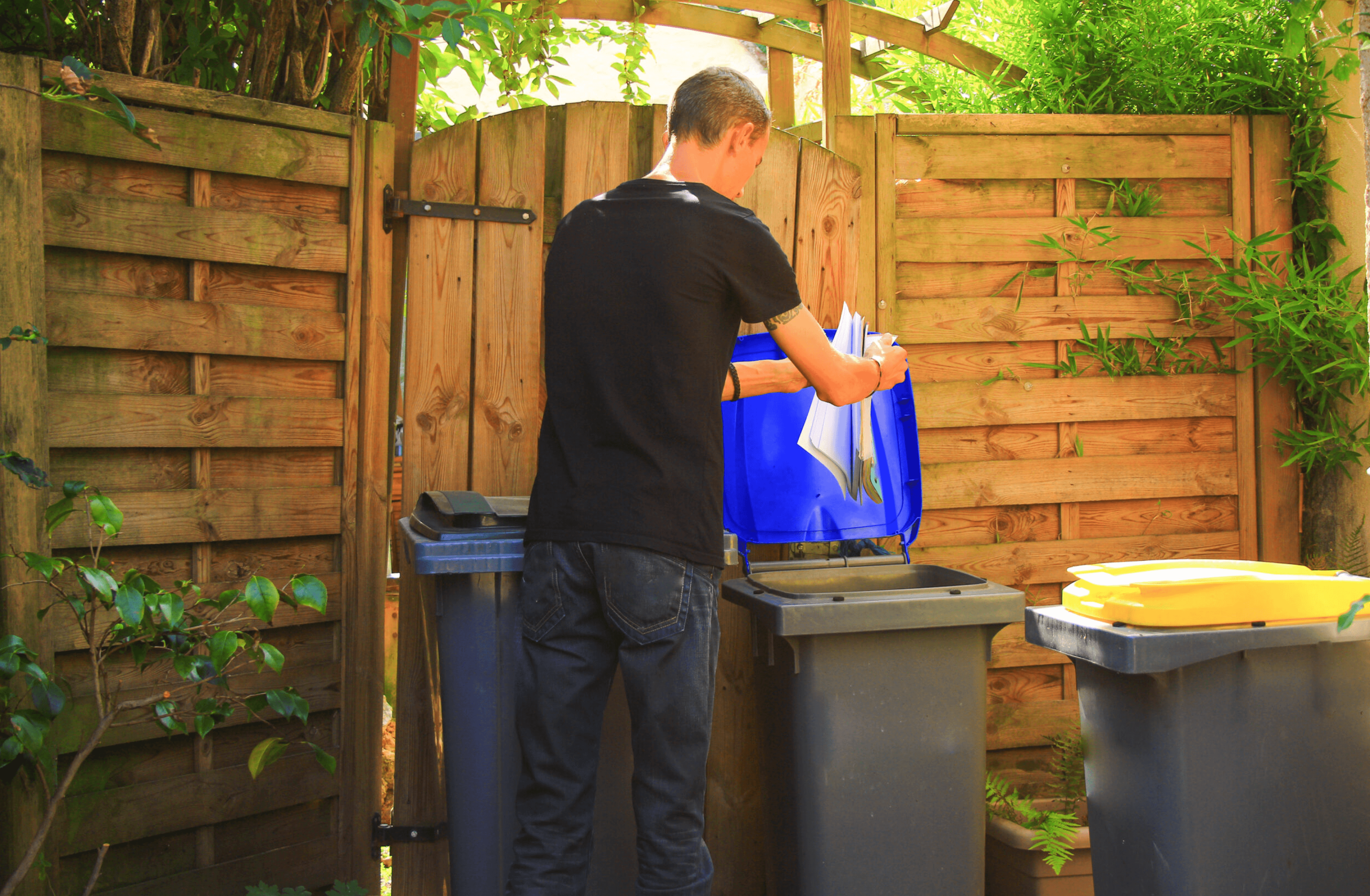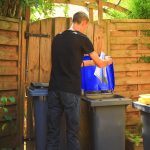
Public Awareness Is the Key to Better Recycling in London
How changing habits, building trust, and responsible rubbish removal can help London achieve a greener future.
At London Rubbish Removal, we work with thousands of households and businesses across the capital, and we see first-hand how much difference recycling awareness makes. Londoners are increasingly concerned about sustainability — yet official data show that our city still falls behind the rest of the UK in household recycling performance.
Recent research highlights that while awareness of recycling is high, participation often falls short. This article reviews findings from leading studies and government reports to understand why that gap exists — and how professional rubbish-removal services can help London move toward a cleaner, circular economy.
London’s Recycling Challenge
According to the Office for National Statistics (ONS, 2023), the average household recycling rate in London remains around 33 percent, compared with 43 percent nationally. Outer boroughs such as Bexley, Bromley, and Sutton reach or exceed 50 percent, but inner-city areas including Westminster and Camden recycle less than half that.
Infrastructure is only part of the story. Research reviewed by London Rubbish Removal shows that residents face several behavioural and logistical barriers:
- Confusion about what can and cannot be recycled
- Limited bin space in flats and shared housing
- Irregular or unclear collection schedules
- Mistrust over how recyclables are actually processed
Understanding these barriers is essential. Improving recycling rates is not just about more bins — it is about trust, convenience, and communication.
What Influences Recycling Behaviour
1. Awareness vs. Action
Most Londoners say they care about the environment and want to recycle. Yet, surveys by WRAP (2021) show that only about half recycle correctly. Inconsistent labelling across boroughs and complicated packaging symbols create confusion and lead to contamination of recyclable materials.
As one government report put it, “knowing” and “doing” are two different stages — and information alone rarely guarantees participation (Defra 2019).
2. Convenience and Accessibility
Residents are more likely to recycle when the process is convenient. In high-density areas, the lack of space for multiple bins discourages participation. Boroughs that offer simple, well-communicated systems — such as separate weekly collections and clear signage — consistently outperform those with fragmented schemes.
Our own teams at London Rubbish Removal often encounter the same pattern: households with easy access to clearly labelled bins recycle far more than those who need to navigate complex communal bin areas.
3. Trust and Transparency
Behavioural research emphasises the role of trust. Studies cited by the Greater London Authority (GLA, 2018) and BBC (2022) show that people recycle more when they believe the system works. Media reports about exported or incinerated plastics, however, reduce motivation.
That is why transparency matters. At London Rubbish Removal, all collected waste is taken to licensed recycling and treatment facilities approved by the Environment Agency. We also issue a Waste Transfer Note for every collection, ensuring complete traceability.
4. Social Norms and Community Influence
Recycling is contagious — in a good way. According to social-norm research (Schultz et al., 2013), people are more likely to recycle when they see their neighbours doing it. Community-based campaigns and visible participation can raise recycling rates by up to 20 percent.
Companies like ours can support this effect by running local awareness initiatives and collaborating with residents’ associations and property managers to create cleaner, more organised collection points.
How Private Waste Companies Can Help
Public authorities alone cannot solve the recycling challenge. Professional waste-management firms have the flexibility and on-the-ground insight needed to complement council services. At London Rubbish Removal, our approach combines efficiency, environmental compliance, and customer education.
Eco-Friendly Waste Collection
Every load we collect is sorted to divert recyclable materials from landfill. Wood, metal, paper, and plastics are separated and processed at authorised recycling centres. For bulky or renovation waste, we prioritise reuse wherever possible — for instance, donating usable furniture to charity partners.
Education and Awareness
We regularly publish guides, blog posts, and infographics to help residents understand how to recycle correctly. Simple visuals and step-by-step instructions have proven to be among the most effective tools for behavioural change.
Our commitment aligns with the Defra (2018) Resources and Waste Strategy and the Mayor’s Environment Strategy (GLA, 2018), both of which emphasise waste reduction and circular-economy principles.
Collaboration and Community Projects
We work with local councils, schools, and landlords to promote recycling awareness days and clean-up campaigns. These partnerships demonstrate that when residents, authorities, and private firms work together, environmental outcomes improve dramatically.
Turning Awareness Into Action
The reviewed research — including the academic paper “Public Awareness and Behavioural Factors Affecting Household Recycling Rates in London” — concludes that success depends on changing behaviour, not just providing infrastructure.
Some of the most effective steps include:
- Unified recycling guidance across all London boroughs
- Digital reminders and apps that help residents track bin days
- Transparent reporting about where recyclables end up
- Reward systems or community recognition for consistent recyclers
London Rubbish Removal supports these ideas by integrating sustainable practices into every aspect of our operations — from vehicle routing to material processing.
A Shared Responsibility
Improving recycling rates is a collective effort. Residents need clear information; councils need consistent policies; and companies like London Rubbish Removal must continue to provide transparent, reliable, and eco-friendly waste-collection services.
Every responsible choice — from separating glass bottles to booking a licensed waste carrier — helps reduce landfill pressure and lower carbon emissions. Together, Londoners can transform awareness into measurable environmental progress.
References
- Ajzen, I. (1991) The theory of planned behavior. Organizational Behavior and Human Decision Processes, 50(2), pp.179–211.
Available at: https://doi.org/10.1016/0749-5978(91)90020-T - Barr, S. (2007) Factors influencing environmental attitudes and behaviours: A UK case study of household waste management. Environment and Behavior, 39(4), pp.435–473.
Available at: https://doi.org/10.1177/0013916505283421 - BBC (2022) UK plastic waste being sent abroad for dumping and burning. BBC News, 25 January.
Available at: https://www.bbc.co.uk/news/uk-60131590 - Department for Environment, Food and Rural Affairs (Defra) (2018) Our Waste, Our Resources: A Strategy for England. London: Defra.
Available at: https://www.gov.uk/government/publications/resources-and-waste-strategy-for-england - Defra (2019) Recycling Tracker Survey Results. London: WRAP.
Available at: https://www.gov.uk/government/organisations/department-for-environment-food-rural-affairs - Greater London Authority (GLA) (2018) Mayor’s Environment Strategy. London: GLA.
Available at: https://www.london.gov.uk/programmes-strategies/environment-and-climate-change/environment/mayors-environment-strategy - Office for National Statistics (ONS) (2023) UK Household Waste Statistics. London: ONS.
Available at: https://www.ons.gov.uk - Schultz, P. W., Nolan, J. M., Cialdini, R. B., Goldstein, N. J. and Griskevicius, V. (2013) The constructive, destructive, and reconstructive power of social norms. Psychological Science, 18(5), pp.429–434.
Available at: https://doi.org/10.1111/j.1467-9280.2007.01917.x - Stern, P. C. (2000) Toward a coherent theory of environmentally significant behaviour. Journal of Social Issues, 56(3), pp.407–424.
Available at: https://doi.org/10.1111/0022-4537.00175 - Waste and Resources Action Programme (WRAP) (2021) Recycling Tracker Survey 2021 – UK Results.
Available at: https://wrap.org.uk/resources/report/recycling-tracker-2021-uk-results - Rubbish Removal UK (2025). Available at: Public Awareness and Behavioural Factors Affecting Household Recycling Rates in London
Author Profile
Latest entries
 RecyclingOctober 28, 2025Public Awareness Is the Key to Better Recycling in London
RecyclingOctober 28, 2025Public Awareness Is the Key to Better Recycling in London Garden ClearanceApril 5, 2025Old Decking Removal – Deck Dismantling DIY Guide
Garden ClearanceApril 5, 2025Old Decking Removal – Deck Dismantling DIY Guide carpet removalMarch 24, 2025Carpet And Rug Removal – DIY Guide
carpet removalMarch 24, 2025Carpet And Rug Removal – DIY Guide kitchen removalMarch 20, 2025Kitchen Cabinets and Appliances Removal Guide- Wall Tiles Included
kitchen removalMarch 20, 2025Kitchen Cabinets and Appliances Removal Guide- Wall Tiles Included